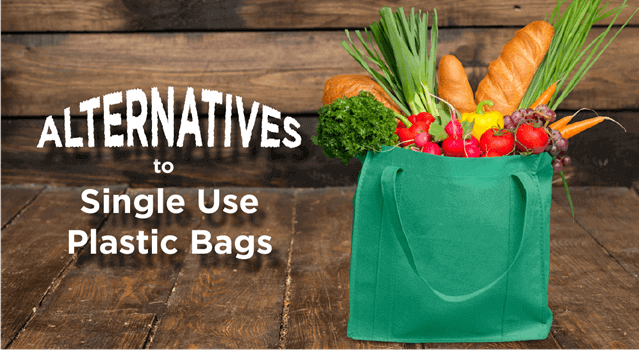One-time-use plastics have become a significant problem for the environment since they cannot be broken down by natural processes. In order to lessen the damage they do to the environment, many companies have come to the conclusion that they must cut back on or do away with their reliance on plastics designed for single use.
There are various reasons why people use single plastic for businesses. It needs to be more understandable that the environment has its own impact when it comes to plastic. Hence many businesses have initiated taking their major quality, and re-useable factors just in case to stay for better customer needs.
For certain businesses, including the food and healthcare sectors, where safety and cleanliness are high priorities, single-use plastics offer some advantages. They are a desirable alternative since they are also economical for corporations. However, we also need to take into account how these plastics affect the environment negatively. It is crucial to look into alternate, more environmentally friendly choices wherever available. Single-use plastics could have certain benefits, but in order to safeguard the environment and foster a healthy future, it is crucial to minimize their use.
Alternate Options for single-use plastics in commercial settings:
- Organic polymers, such as cornstarch or vegetable oils, are used to create biodegradable or compostable plastics. These polymers may be susceptible to natural degradation. As opposed to being degraded into soil and compost like biodegradable plastics, compostable plastics can actually be used again and again. Biodegradable polymers are manufactured to dissolve in water and break down in sunlight.
- Reusable shopping bags and other packaging: A business may significantly reduce its usage of disposable plastics by switching to reusable alternatives such as shopping bags, drinking containers, and dining utensils. Cotton, canvas, glass, and stainless steel are all examples of long-lasting materials that may be utilized to make items that can be cleaned and used again and again
- Water fountains and disposable plastic water bottles are now commonplace at many workplaces. Instead, you could provide a water station where guests could replenish their own containers.
Why single-use plastic is banned
Plastic that is only used once is against the law in many countries across the world because of the damage it does to the environment. Plastic items that are only used once, such as straws, shopping bags, and the packaging used for food, may persist in the environment for hundreds of years, where they can wind up contaminating rivers, causing damage to animals, and even finding their way into the food chain. The already-existing dilemma caused by global warming is greatly exacerbated by the emissions of greenhouse gases that result from the disposal of discarded plastic. Governments, corporations, and people are all taking action to cut down on the amount of trash produced by plastic by passing laws that prohibit the use of single-use plastics, putting a greater emphasis on recycling, and promoting the use of alternative materials. This is done in order to save the ecosystem and forestall the infliction of any additional harm on our planet.
How to reduce the use of plastic in your business
There are a few different avenues that may be pursued in order to eliminate the need for polymers that are only used on a single occasion. People need to be encouraged to use public water fountains rather than buying bottled water, and disposable coffee cups have to be replaced with reusable ones. These are only a few of the many things that ought to be done. In addition, encouraging people to utilize water fountains rather than buying bottled water is another step that may be taken. If you own a company that sells items, you may want to consider switching to packaging made of recycled plastic and encourage consumers to bring their own reusable bags and containers when they buy with you. This would help reduce the amount of waste that ends up in landfills. If you are the manager of a company that sells items, you may want to also consider making the move to packaging that is made of recycled paper.
Take into consideration the things that are regularly delivered to the location where you are employed. For instance, stationery may arrive in cumbersome packaging, and the majority of its individual components, such as rulers and ballpoint pens, are often made of plastic. Is there an alternative product that you could use that either contains less plastic or needs less packing than the one you now use? If you have any say over the purchasing decisions made at your company, you should check with your regular vendors about the alternatives to plastic packaging that they have available and see what they have to say about the subject.
Reusable and durable, reducing the amount of plastic waste generated
Plastic bags and wrapping are everywhere. Misused plastic bags and wrap wind up in landfills or our towns’ parks and streets. Both are abundant and readily available.
Plastic bags and wrap may be reused in easy, efficient, and cost-effective ways. Reducing, reusing, and recycling plastic bags and wraps may benefit consumers, retailers, and the environment. Packaging industrial shrink wrap is recyclable and sells well as a raw material. Encourage local businesses, schools, and organizations to recycle plastic bags and wrap.
Conclusion
The use of plastic flatware for takeaway orders and cling film for preserving leftovers in the refrigerator may be handy, but there are certain consequences associated with its use that have to be taken into consideration. Prior to recycling hard plastics, such as the kind used in cutlery, it is essential to dispose of them in an appropriate manner. Additionally, there is no way to recycle cling wrap, and the majority of plastics can only be recycled one time, which makes recycling an unsustainable option for the long run.
